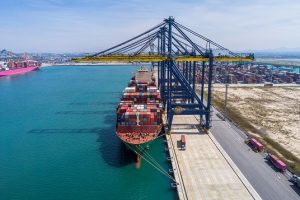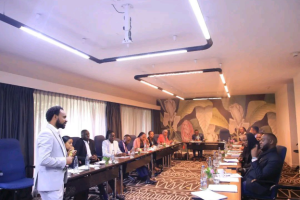BY MENGESHA AMARE
Ethiopia has long been caught at political crossroads with backlogs of socio-economic and political challenges that remain unsolved to this very day.
The openings up of the political and democratic landscapes that came on the heels of the reform have also lifted the lid on the years of political conundrums in the country.
Since the beginning of the reform period, the government and other pertinent bodies have been throwing their full weight in finding remedies to the problems recognizing that the country is in such perplexing scenario.
Accordingly, various consultative forums have been held at federal and state levels among political parties, opinion leaders and scholars to redress respective problems.
Political negotiations have frequently been organized in Oromia and Amhara states, as they had been mainly rocked by protests and political turmoil under the watch of the previous administration.
Political dialogues are crucial mechanisms by which parties can build consensus, seek the common good. The significance of dialogues proves even more important at a time of the most anticipated election.
In what could be said a continuation of this effort, a similar forum was recently organized in Oromia state with a view to discussing a range of issues revolving around the politically framed essentials.
At the heart of the forum’s main objectives were the relationship between political discussion and the creation of a politically stable country. Also on the table were the associations of political parties and the future of the nation.
Creating amicable relations among political parties, the government and other concerned bodies as well as calculating their centralities along that line were also equally the important objectives of the forum.
Contrary to naysayers, political fraternity among parties can be positively predicted using more frequent administrative discussions and agreements on various national affairs thereby coming up with well defined, comprehensive and reliable political system.
Speaking during the discussions attended by political figures and renowned personalities, Lencho Leta, famous Oromo political elite, said stable Oromo leads to have stable Ethiopia. And, the entire Oromo population has to work hard in collaboration with other Ethiopian brothers and sisters as there is no option indeed other than entertaining such a lucrative means to build a prosperous nation, he said.
“A political culture should be based on dialogue and negotiation, not on confrontation,” said Lencho while questioning as it is possible to reach a compromise point that is acceptable to all.
All political parties in the country have to move in unison to well address the questions, among others, does the majority allow the minority to express their views freely? Do political parties practice internal democracy? Can all members of a given party participate freely in policy discussions? As well as, what measures are being taken to strengthen the culture of democracy among the society?
“The fragmented way of running political activity leads either the political parties or the country nowhere. Yes, in political discussions, better connected individuals do not capitalize equally on the potential influence that stems from their more central theme—building a nation, and popular individuals who have more direct connections to other members discuss politics more often but in politically safer interactions that minimize risk,” he said.
According to Lencho, every political party has to facilitate conditions that are more likely to be accepted if not, able to bridge wider gaps entertaining political persuasion. These approaches help consider how various types of dialogues and deliberations shape the political behavior, he added.
He further stated that dialogue is the best way to resolve problems. It is the only way to reach decisions that are acceptable to everybody. Undeniably, it is the primary means of avoiding, or resolving, conflicts of all sorts.
“What separates democracy from other political philosophies is the principle and practice of solving differences first and foremost through dialogue,” Lencho underscored.
Another equally notable figure who has partaken in the discussion was Dima Negewo. He said that so long as all parties are working for the same nation they have to develop common understanding and help the nation and solve its problems.
The government has now been challenged by a number of factors as there are nationalists everywhere seeking for equality, fairness and inclusive approach.
The political scenario has to be an even playground for all concerned like the parliament is the forum where a plurality of views needs to be heard. Plurality of views means including all voices in the political debate be they are contestant parties, ruling party or voices of the entire society can be represented. He further said that the ability to listen and understand is sometimes as, if not more, important than our ability to speak—the essence of dialogue.
He also said that the forum is of paramount importance in touching the crux of ideologies reflected by different political parties, inside and outside parliament, between parliament and citizens. Individual party members, as the link between people and the parties, maintaining a political dialogue with the citizens they represent, explaining the decisions taken by respective parties of the government, and gathering views that will help come up with sound decision-making.
According to Dima, During the previous Ethiopian People Revolutionary Democratic Front (EPRDF) there was development and some sort of growth, but its administration lacked equality and fairness.
The discussions have to be well inclusive of different points of view as lack of inclusive dialogue generates frustration and, over time, rejection and rebellion, he added.
Basically, dialogue and inclusiveness are part of the essence of a culture of democracy. They are qualities that need to be nurtured and demonstrated in everyday life, said Dima.
One of the participants of the forum, Mihretu Shanko on his part said that the issue of making a stable nation, inclusive political landscape and participatory atmosphere should not be left solely to the government. Waiting from a solution solely from a government has been becoming a culture in the country. “Even when a husband and a wife confront, they expect of the government to go between,” he cited.
The discussion or dialogue oriented political communication enables the nation in general and the parties address a range of pitfalls.
Discussion full of civility about issues, particularly politics, soothes tough confrontations, whereas hatred politics often exhibits the opposite effect of widening the knowledge gap and perpetuating inequality.
It is quite important to understand that opportunities for political integration and engagement offered by political discussions should be afforded equally across the political parties, which have important implications for broader engagement.
As the nation gears up for the sixth round national elections, political polarization, fake news dissemination, election interference, divisive administration have to be well reversed to bring about a country we have been long aspired so far.
These are the sorts of judgments that vex political party leaders, and supporters and electorate.
Without a shadow of doubt, political parties play a crucial role in modern representative democracy. They act as initiators of reform, gather demands from society and turn these into policies, recruit people for executive and legislative positions and exercise control over government. In performing these roles, competition between political parties is inevitable, he said.
As to him, when contests over power can be bitter, political discussion over reform and development leads to fruitful dialogue and agreement between parties. After all, meaningful dialogue allows political parties to arrive at legislative majorities or accommodate important minority views.
In sum, such discussion platforms make activities easier for parties to engage with other stakeholders and representative groups, enrich and implement their views and ensure that any agreements made can be kept under unceasing review.
The Ethiopian Herald February 11/2021



